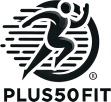Build Phase 2 / Week 1 / Run 3 – Road to TOWaterfront 42K
Today’s threshold run was one of those deceptive workouts: it looks simple on paper but finds a way to squeeze every drop out of you. While I hit my targets, I felt absolutely drained by the end.

I got a much later start than usual after staying up too late (again) trying to rewatch World War Z. When I woke up, I was groggy. Pre-run fueling included a white bagel with jam around 1:45 before heading out, and a Lemon-Lime SiS isotonic gel (not my favourite) washed down with Nuun.
My protocol was in play: 2 SaltStick caps before starting, then every 2 km. I also paused my watch during recovery from Stride 1 and after the second threshold interval for hydration and caps. There was another pause during the third interval at a busy intersection.
The cooler air was initially refreshing, but that didn’t last long. While the execution was mostly smooth, I was surprised at how much this run took out of me. Nutrition seemed on point, and the numbers weren’t outrageous. Still, post-run, I was zapped.
Let’s see what coach has to say.
Metrics Snapshot
| Metric | Value |
| Duration | 1:07:04 |
| Distance | 10.2 km |
| Avg Pace | 6:36/km |
| Normalized Graded Pace (NGP) | 6:26/km |
| Elevation Gain | 236 m |
| Elevation Loss | 276 m |
| Avg HR | 153 bpm |
| Max HR | 165 bpm |
| Pa:HR | 4.55% |
| EF | 1.02 |
| Cadence Avg | 167 spm |
| rTSS | 97 |
| hrTSS | 77 |
| VAM | 211 m/h |
| VAM W/kg | 1.08 |
What The Numbers Say
rTSS vs hrTSS: The rTSS of 97 and hrTSS of 77 show that pace intensity was higher than what heart rate alone would suggest – likely due to terrain or fatigue suppression.
IF (pace) vs IF (HR): 0.89 vs 0.79 also reflects this effort mismatch – your output remained high even as HR trailed slightly.
Pa:HR at 4.55% is within acceptable range for a threshold session, and EF (1.02) suggests aerobic efficiency remained solid.
VAM & VAM W/kg show that despite fatigue, you were still climbing at a strong rate (211 m/h). These numbers align with a sustainable mid-Z3 effort, especially considering the elevation gain.
Takeaways
- The cumulative fatigue is real. This run followed a progression workout and a Z2 effort earlier in the week – be mindful of the stacking.
- Despite being drained post-run, metrics confirm solid aerobic output.
- Your fueling and hydration were dialed in, though SiS gels may not be the go-to.
- Next time, aim for better rest the night before. Zombie flicks can wait.
Still standing. Still stacking.
Check out earlier Zone 2 Run with fatigue insights
Recap, Recover, Relax & Ready.

[…] Check out the threshold session that drained me the day before […]
[…] Threshold Run – August 1, 2025 […]
[…] Prior tougher session: Threshold Run – Aug 1 […]